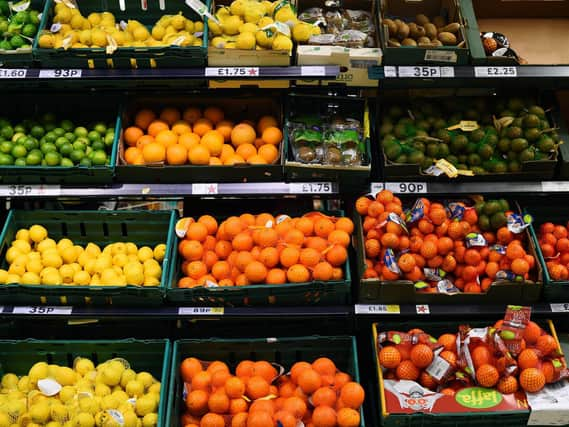Problems within the food supply chains are 'probably only going to get worse' a Yorkshire business has warned


Retailers and restaurants across the country have been hit with product shortages in recent weeks, as manufacturers and other component businesses face worker shortages.
Fast-food empire McDonalds has said that it has run out of milkshakes in most of its UK restaurants, The burger chain has also been left without bottled drinks across its 1,250 outlets in England, Scotland and Wales as the lorry driver shortage takes its toll.
Advertisement
Hide AdAdvertisement
Hide AdTanya Goldthorpe, head of communications at Blacker Hall Farm and Farm Shop near Wakefield, said the amount of time it was taking products to get from suppliers to their shelves had at least doubled, and that the business was also having issues recruiting for its specialist butchery.
She told The Yorkshire Post: “The majority of our produce comes from our own farm, so we’re in a very lucky position that we haven’t got major supply issues in that respect, but we have with packaging and other things like that.”
Explaining that “there has been an “extreme price rise” on some of their essentials which do need to be brought in from elsewhere, she added: “We’re also seeing a lot of things stuck abroad not being able to reach us - packaging and cups and things like that that we’ve obviously paid for and are stuck and can’t get over to us.”
Industry figures have suggested that the issues could continue towards the Christmas season, when retailers experience some of their busiest times of year.
Advertisement
Hide AdAdvertisement
Hide AdWhile Ms Goldthorpe does not think any popular products will be completely unavailable, she warned things could be “limited” and “once it’s gone it’s going to be gone.
“It will be shortages of what we have, shortages of what we’ve got on the shelves, of what we can supply out to our customers,” she said.
“It will limit our range. We are very lucky that a lot of our things we produce ourselves and come from our own farm, but when you’re talking about things like mincemeat or flour or things like that we’re obviously going to be limited to how much we can get and then sell on to our customers.”
Ms Goldthorpe said she does not think that the problem will be a short-term fix, and said “I think if anything it’s probably only going to get worse,”
Advertisement
Hide AdAdvertisement
Hide AdShe added: “I certainly don’t think it’s anything that’s going to be solved in the short term, that’s what we’re hearing from a lot of our suppliers. They’re struggling to get things in and therefore they’re struggling to then get them to us.”
The National Farmers Union (NFU) said the workforce in farming and food has “undoubtedly tightened in recent months” and that the “struggle to recruit staff” was down to a “mixture” of factors from long before Covid.
Vice President Tom Bradshaw Tom Bradshaw said: “These are unprecedented times and there are no easy, immediate fixes to the underlying workforce issues, many of which pre-date the pandemic. But there are steps the government can take now to mitigate this pressure and prevent future issues, for example, by developing an immigration system to address shortages in critical sectors like food production and ensuring the Seasonal Workers Scheme becomes permanent – and with a wider scope to cover ornamentals and seasonal poultry farm workers. Longer term, developing an industry-wide, holistic skills strategy will ensure that all areas of the country have access to people with the right skills enabling us to produce the country’s food long into the future.”